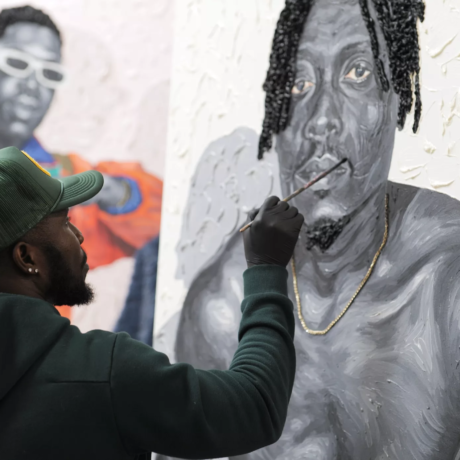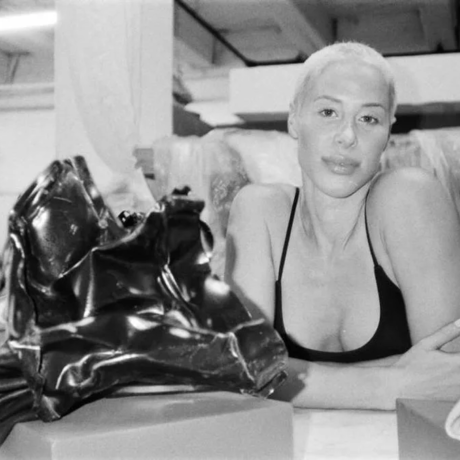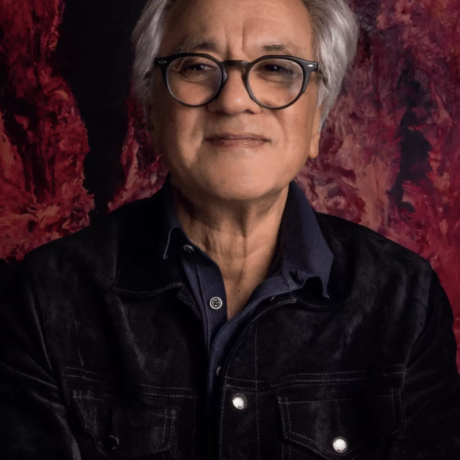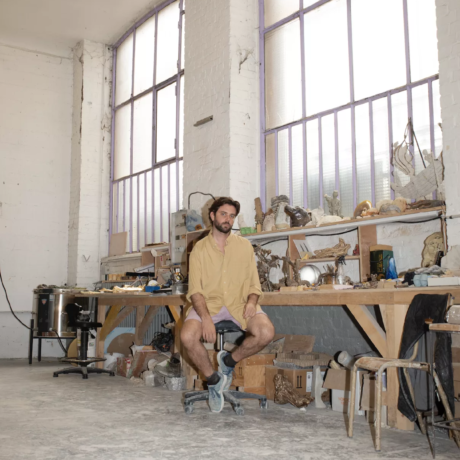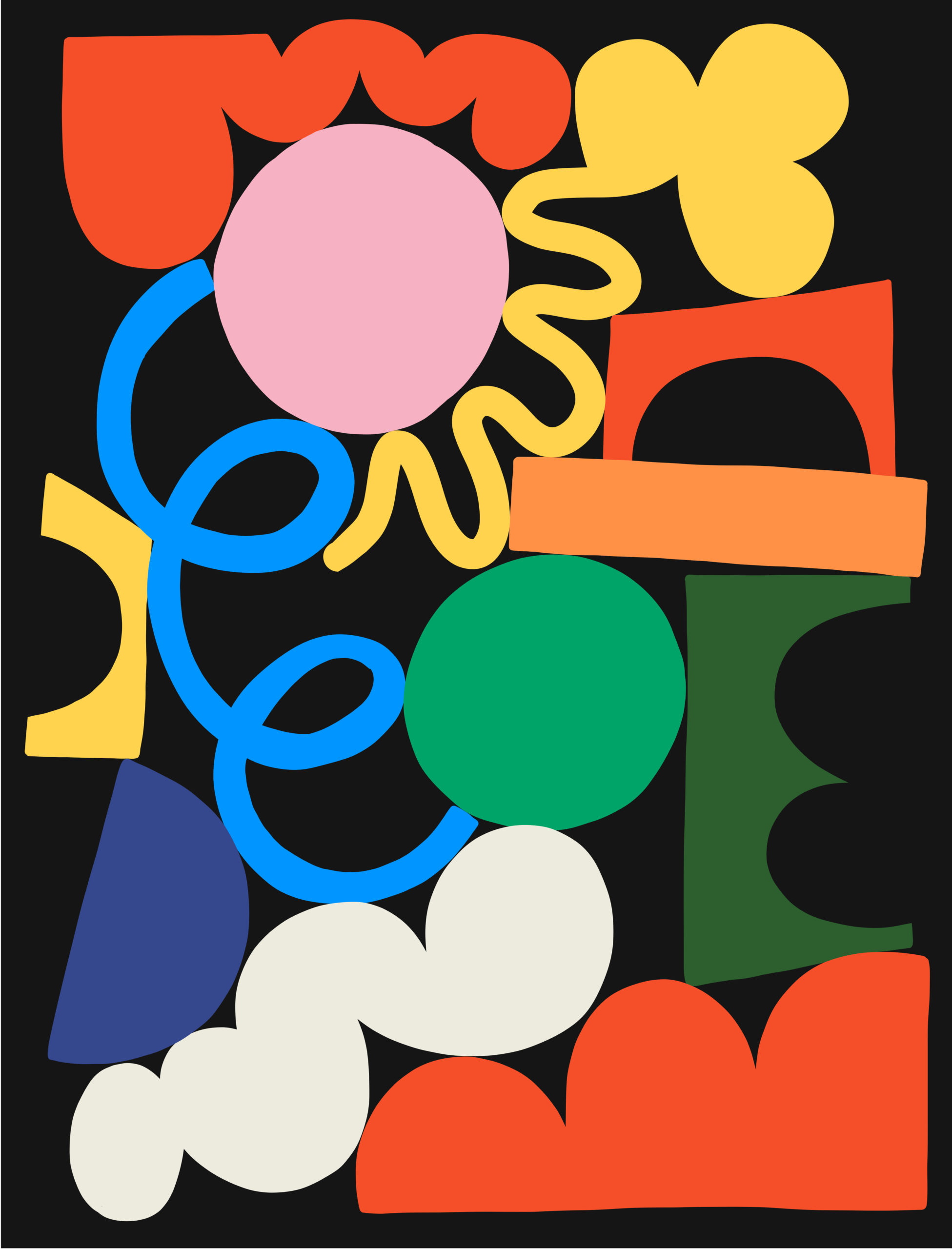
I still remember the look on my mother’s face when I grandly told her that I planned to become a writer. A mixture of pity and concern tightened her jaw, which she quickly adjusted to a smile: “Why don’t you look for another job?” It is an exchange that most working in the creative industry will be familiar with. There is a widely-held perception that roles in the arts are not “real jobs”, and a lingering stigma that leads parents like my own to subtly nudge their children towards more stable professions. The sector is undoubtedly riddled with financial insecurity, but it remains a lifeline for many who struggle to find a place for themselves in the world.
There is also a limited understanding of the diversity of roles available in the creative industry. The image of the starving artist or writer is a well-worn trope, but what about the technicians, fabricators, graphic designers, sub-editors, publishers and gallery managers who operate behind the scenes? Despite my early aspirations, it would be years before I discovered the range of options available beyond the vague writerly role that I had envisaged for myself. Later, I spent a period as a copywriter working with brands, a job that by its nature remains hidden from view. For those without connections to the industry, the first hurdle can be not just getting a foot in the door, but locating the correct door in the first place. For a long time, I simply didn’t know where to look.
The pandemic has brought many of these invisible roles into the public view. We have heard the stories of those who found themselves suddenly out of work following the closure of theatres, cinemas, and hospitality and music venues. It is heartbreaking that it has taken a time of crisis to lay bare the infrastructure that supports the livelihoods of so many. Government figures show that the country’s creative industries contributed £111.7 billion to the UK in 2018, equivalent to £306 million every day, and 5.5 percent of the economy as a whole. While no sector should be valued for its economics alone, it is a remarkable figure that is testament to the powerful reach and impact of the arts.
“The image of the starving artist or writer is a well-worn trope, but what about those who operate behind the scenes?”
A government-backed advert that encouraged people working in the arts to retrain in cybersecurity surfaced this week. A ballet dancer is shown tying her shoes, captioned with the words: “Fatima’s next job could be in cyber. (She just doesn’t know it yet)”. It is revealing of an endemic attitude towards the creative sector: one that assumes the role of a dancer (or any other artistic role) could only ever be a temporary indulgence. The advert has since been withdrawn following widespread criticism, but it remains a mark of how rarely the arts are taken seriously.
Creativity requires firm confidence in your own work, a quality that is almost impossible to muster at will, but the plague of self-doubt doesn’t just come from within. This is a societal issue, and the lack of faith in the arts leads to it being constantly sidelined and underfunded. While those who work in the sector must consistently multitask across a diverse range of skills, from managing budgets to designing web interfaces, organising outreach to analysing data, they are reduced to little more than an afterthought in the eyes of the government.
Last week, in a sentiment that echoed the recent advertisement, British Chancellor Rishi Sunak suggested in a television interview that “musicians and others in arts should retrain and find other jobs.” He later argued that he had in fact been talking “about employment generally and not specifically about the music or arts sector”, but it is indicative of a false binary that is so often drawn between creative jobs and “real jobs”. Of course, the irony is that many in the arts already work more than one job to make ends meet.
Meanwhile, retraining is less than straightforward, with often prohibitively expensive fees for higher education, not to mention the cost of time spent in training rather than paid employment. Many in the creative sector have already spent years training for their chosen profession and honing their craft; certainly, the government’s fictional ballerina, Fatima, would have done so. They would benefit from renewed support for their chosen career, particularly following the devastating impact of the recent lockdown closures, rather than the dictate that they start over.
“This is a societal issue, and the lack of faith in the arts leads to it being constantly sidelined and underfunded”
In Norway, a democratic approach to the arts has seen it establish a longstanding funding model that is unique in the world, and allows anyone to have a creative career. Artists receive a salary from the government, a reflection of a socialist outlook and general consensus that art and culture are a vital part of a healthy society. It is an attitude that other nations would do well to adopt. A recent bailout of £257 million in funding for struggling arts organisations in the UK is the first step towards renewed investment in the industry, but a one-off payment does not equate to a fundamental shift in outlook.
Importantly, the monetary value of the creative industry is not the only measure of its worth. Poetry, exhibitions, films and songs bring pleasure and solace to millions every day, and to overlook this is to reduce both society and work to nothing more than a form of machinery. “Lockdown should have convinced everyone of the worth of the arts,” Juliet Jaques wrote in Tribune last week, “both because the absence of cinema, theatre, live music and comedy reminded us of how cultural events bring more joy and thought into our collective experiences, and because so many of us used television, films, books and music to guide us through the boredom, disorientation and sadness of the pandemic.”
The arts must now enter a period of recovery, but hundreds of jobs have already been lost. The already squeezed industry has long been notable for the adaptability of its workforce, who often take on multiple responsibilities beyond their role alone. The impulse to constantly reshape yourself to meet ever-longer job specifications is a natural (and increasingly necessary one), but what is lost in the process? As the industry tightens further under the financial pressure, more will find themselves either shut out or else scrambling to fit the mould. Until the creative industry is understood by those in power as more than just a hobby or dream, and is properly funded to reflect this, it will remain plagued by elitism and inequality. A fundamental change needs to happen, but we don’t need to retrain; we already have real jobs.
Are We There Yet is a fortnightly column by Louise Benson. Top image © Micke Lindbergh
